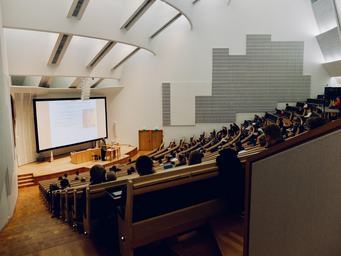COVID-19 has made it a rough year for many college students, including myself. While I did my best to stay safe and entertain myself at home during quarantine, I was diagnosed with two autoimmune diseases. The big question in mind was, “How will I get through school and take care of myself?”
Based on my experience, here are 5 tips to get through school with an autoimmune disease:
- Diet
-
A healthy and balanced diet is crucial to preventing inflammation. Although doctors may not have a specific diet recommended for each disease, some research shows that diet is key to preventing inflammation which triggers autoimmune flare ups! This article from Healthline has some amazing information, but also make sure to speak to your doctor.
- Sleep
-
We heal in our sleep, so it’s essential to get a good night’s rest! My doctor recommended at least 8-9 hours of sleep each night. It’s also important to avoid compromising on your sleep schedule. Work everything around it if possible. Setting a sleep schedule and sticking to it does miracles for your body, and you’ll thank yourself later.
- Schedule
-
If you’re like me, you have blocks of time where your energy is at its best! So, set your designated work/study time during your best hours. At the moment, my energy levels are best in the morning from 9 a.m.–12 p.m. and in the evening from 5 p.m.–8 p.m. In between those times, I rest as much as possible.
- Time-off
-
Working and attending school can be stressful, so it’s definitely important to set days off to completely relax and unwind. I find it easier to set Monday through Friday for work and school and keep the weekend as a break. There will be some weeks you may need extra time during the weekend to study or catch up, and that is okay! The goal is to set chunks of time where you can be relaxed and find joy.
- Saying no
-
You might have a ton of group work or projects on your plate, and it’s crucial to set limits to prevent a flare-up. If your team wants to give you more work than you can handle or work is overly stressful, politely decline and give them a solution. Saying “no” can be difficult and uncomfortable, but it’s worth it for your health and peace of mind.
I was recently diagnosed with two autoimmune diseases, and it was terrifying and difficult. However, having an open and honest conversation with my team at work and school has allowed me to remain a successful student.
Your body needs you to listen and care for it, so don’t be afraid to set your limits. We must learn to heal and prevent ourselves from potentially developing other diseases or illnesses. If you have any questions, contact your doctor and ask for a specialist if your doctor is unsure of something!



